Ukraine: Keep Fighting, U.S. Voters Say
Ukraine’s President Volodymyr Zelenskyy is wildly popular with American voters, who believe Ukrainians should not settle for anything less than complete victory over their country’s Russian invaders.

Ukraine’s President Volodymyr Zelenskyy is wildly popular with American voters, who believe Ukrainians should not settle for anything less than complete victory over their country’s Russian invaders.

When President Joe Biden declared last week that Russian President Vladimir Putin could not remain in power, the White House scrambled to "walk back" that comment. It turns out, however, American voters overwhelmingly agree with the president's ad-libbed sentiment.
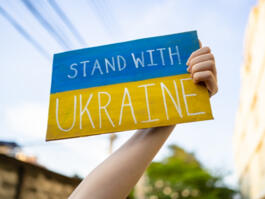
A plurality of voters believe the United States isn’t doing enough to help Ukraine defeat the Russian invaders, even while a majority agree with a warning that President Joe Biden’s administration may be trying to do too much.
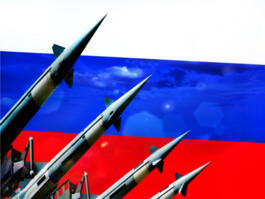
A majority of voters are concerned that Russia will use nuclear weapons in its war against Ukraine, but are less worried that the U.S. could be a target of a Russian nuclear attack.

Russia’s invasion of Ukraine will have a negative impact on the U.S. economy, most Americans believe.

Most voters don’t think President Joe Biden has effectively responded to Russia’s invasion of Ukraine, and don’t believe economic sanctions will be enough to stop the Russian aggression.

As Ukraine seeks to repel a Russian invasion, fewer than a third of voters have a favorable view of President Joe Biden’s handling of the situation.

Amid reports of a massive Russian troop buildup on the Ukrainian border, nearly four-in-five American voters are concerned about a possible invasion, and most think President Joe Biden has been less aggressive toward Russia.
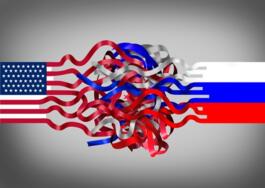
Voters think President Trump is getting more aggressive with Russia, but most continue to believe it’s better to have the former Soviet Union as a friend than an enemy.

After years of repeated violations by the Russians, President Trump is pulling the United States out of one of its last major nuclear arms treaties with the former Soviet Union. Voters remain pessimistic about U.S. relations with Russia and worry that another Cold War is on the way.
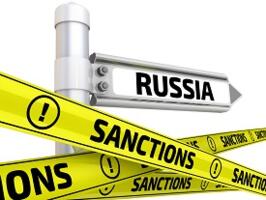
The United States has imposed economic sanctions on Russia for several years in an effort to change some of the latter's aggressive policies, but voters aren’t convinced that those sanctions have worked very well.

After a delayed start this morning, the much anticipated meeting between President Trump and Russian President Vladimir Putin is now under way, but voters aren’t optimistic about future relations with the former Cold War foe.
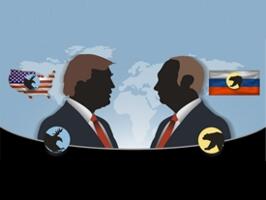
The White House is currently in the early stages of planning a summit between Russian President Vladimir Putin and President Donald Trump in an effort to improve Russian-American relations.
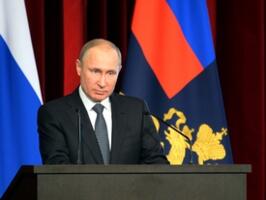
The Trump administration today announced that it is about to expel 60 Russian consular officers and close Russia’s Seattle consulate in retaliation for the poisoning of a Russian spy and his daughter in the UK.
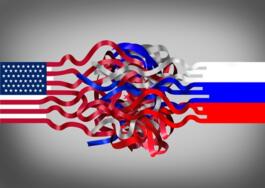
Russian President Vladimir Putin announced last week that Russia has developed a nuclear weapon capable of beating U.S. and NATO missile defenses. Voters here aren’t particularly worried about a Russian nuclear attack, but they are more concerned these days about souring U.S.-Russia relations.

A former CIA officer was arrested this week for retaining highly classified information relating to the U.S. spy network in China. While most voters consider spying a serious threat to the United States, they’re slightly more likely to see Russia as the culprit than China.

In the wake of the United States’ downing of a Syrian warplane, voters believe this is just the beginning of a situation that will get worse and could result in direct military conflict with Russia.
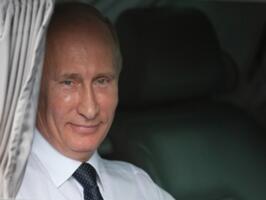
As the United States prepares to sit down with high-level Russian diplomats this week, disdain among U.S. voters for Russian leader Vladimir Putin has reached a new high.

President Trump says U.S. relations with Russia are at “an all-time low,” but voters think the United States can still work with Russia on some issues.

Voters appear to be less concerned that tense United States-Russia relations will have a negative impact on America, but they still strongly believe the two nations are headed for another Cold War scenario.